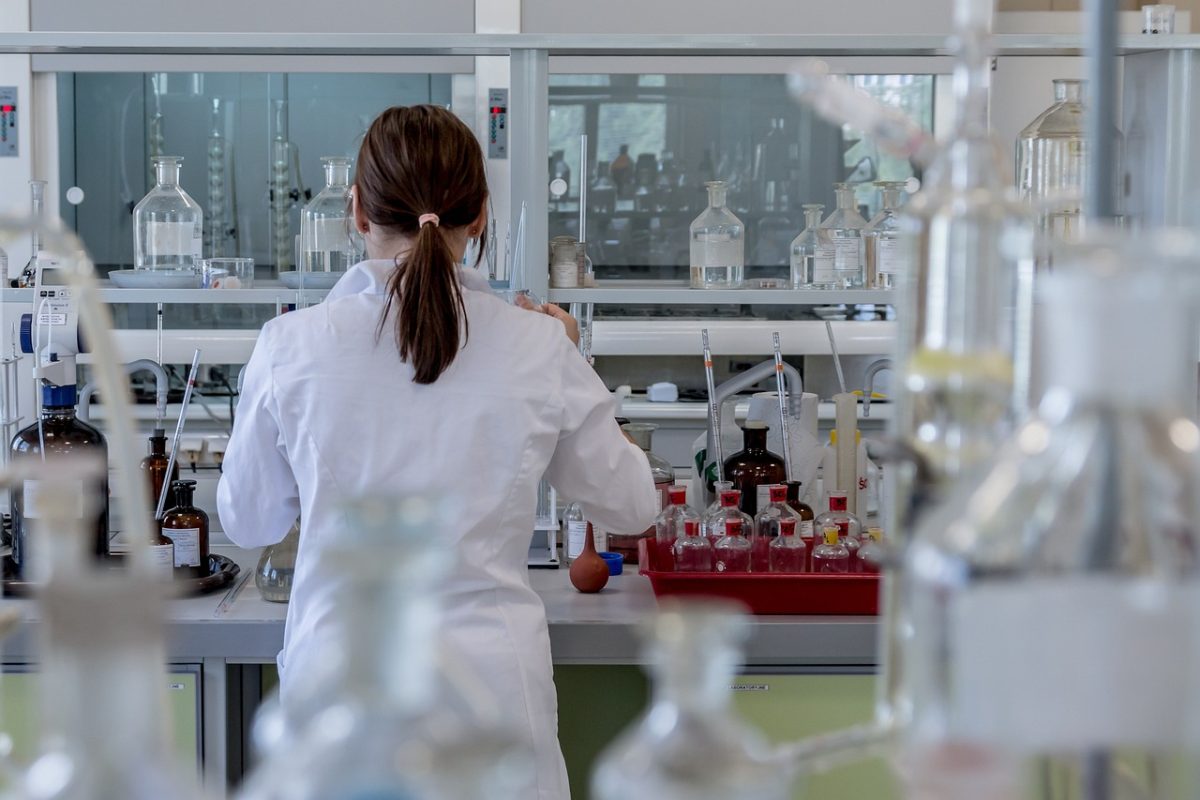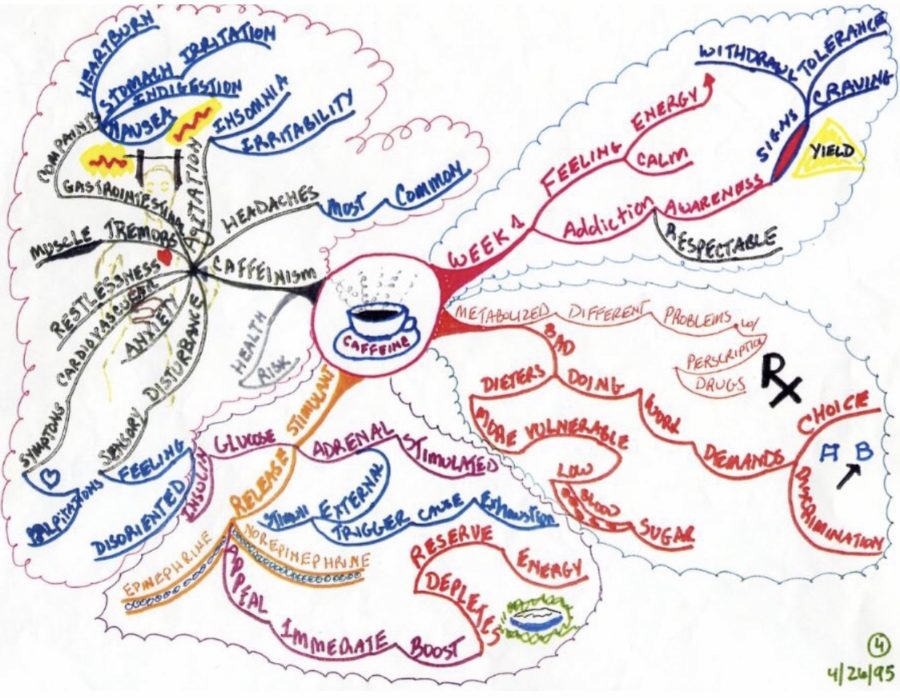Caffeine costs
A mind map created by nutritionist Janet Forton illustrates the impact caffeine has on the human brain.
Like most Cathedral Catholic High School students, Salina Voegtly ‘20 relies on the energizing effects of caffeinated beverages to help her stay alert throughout the school day.
“It’s a good motivator,” Voegtly said. “I drink fairly strong coffee almost every morning, so it keeps me going through the rest of the day.”
On any given day, almost 75 percent of U.S. teens drink caffeine, according to the Centers for Disease Control and Prevention. Since caffeine is widely consumed, its potential health benefits and disadvantages are often debated.
The 2017 death of a South Carolina teen, who overdosed on caffeine and had a subsequent heart arrhythmia after drinking soda, an energy drink, and a latte, recently brought renewed focus to impact of caffeine.
Villanova University defines caffeine as “a drug that stimulates the central nervous system, causing increased heart rate and alertness,” with possible side effects including headache, anxiety, dizziness, nervousness, and heart problems.
But most studies regarding caffeine’s impact are controversial and inconclusive, as stimulants affect each individual based on their diet, size, and tolerance level.
A standard caffeinated drink usually contains about 550 milligrams of caffeine, Villanova University estimates. Caffeine occurs naturally in plants, including coffee beans, tea, cola, and chocolate, but it also is artificially manufactured.
The American Beverage Association states energy drinks and other caffeinated beverages are safe when consumed in moderation, while positive results of caffeine include increased neuron firing in the brain, which causes temporary alertness and combats drowsiness.
“Coffee used to affect me a lot more when I was younger,” Voegtly said. “If I had coffee after three or four in the afternoon, I wouldn’t be able to fall asleep until midnight or so. However, now that I drink it for a while, I can have an espresso in the evening and still fall asleep fairly early.”
However, in addition to its energy boost, caffeine modifies the pituitary gland to produce adrenaline, which can manifest in pupil dilation, increased breathing rate, increased blood pressure, and muscle tightening.
Moreover, caffeine is an addictive drug that uses the same brain pathways as amphetamines, cocaine, and heroin, according to a University of North Carolina Chapel Hill study.
“Eventually your body becomes dependent on the caffeine from the coffee and stops naturally producing it,” Voegtly said. “Furthermore, any drug only works for so long before you need something stronger.”
While caffeine can be healthy in moderation, a Villanova University study reveals 90 percent of adults drink caffeine every day. Caffeine withdrawal symptoms include tiredness, depression, and headaches.
But if consumers control their caffeine intake, occasional consumption of the drink can represent a healthy addition to a balanced diet.
“If you drink caffeinated beverages everyday, eventually you’re going to need something stronger,” Voegtly said. “This does hinder me from having a coffee every day, but not enough that I would quit all together.”

As a senior at Cathedral Catholic High School and the El Cid News Editor, I look forward to promoting positivity on campus by sharing my voice through...





















































